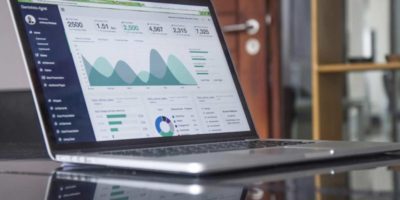The main difference is that Search Engine Optimization (SEO) is focused on optimizing a website in order to get traffic from the organic search results. On the other hand, the goal of Search Engine Marketing (SEM) is to get traffic and visibility from both the organic and paid search. Techimpero is India’s one of the best SEO companies in Delhi. We are offering a wide range of SEO, Digital Marketing, PPC management and Google Adwords services all over India. With relevant Marketing plans crafted as per your needs, we aim to help grow your business. Best Seo company in Delhi
Put another way:
Google’s search results are divided into two main categories: the paid search results and the organic search results. The goal of SEO is to rank your website in organic search results. You can also get your website in the paid area of search results via pay per click (PPC).
SEO is where you focus 100% on ranking in the organic results. SEM is when you tap into both the SEO and PPC in order to get traffic from search engines. So yeah, SEM is a broad term that includes SEO and also PPC.
One of the main differences between SEO and SEM is speed:
The fact is: SEO takes a lot of time and especially if your site is new and does not have a lot of backlinks yet. In fact, an analysis by different websites found that it takes an average of 2 years to rank on the first page of Google. And many of the top-ranking pages were first published 3+ years ago. This does not mean that you should expect it to take 2 years to rank in Google. If you target the long tail keywords and implement SEO best practices, you can start to see some results within a few months.
On the other hand, if you focus your SEM efforts in PPC, you can start to see the results pretty much instantly. You can run an ad in the morning, and start to get the traffic and conversions in the afternoon. But that does not mean that you’ll get an ROI on day 1. In many cases, it can take months of testing and tweaking to get a positive ROI from the PPC. Even so, there is no question that PPC starts working much more quickly than SEO.
When you stop paying, traffic goes to zero:
But with SEO, once you rank, you are pretty much set. Your investment is all up-front. Once you actually rank, you do not need to invest a lot of money into maintaining your current rankings. So yeah, when it comes to the cost, SEO and PPC have their pros and cons. Which is why most businesses use a marketing strategy that includes a mix of SEO and PPC?
When to Focus Just SEO:
You Have a Very Limited Budget: If you are a startup or small business with a tiny marketing budget, you probably want to focus on SEO. You may not see an ROI on your SEO budget for months or years. But it still makes more sense than the burning through your marketing budget on PPC ads that may only run for a week.
You Can Rank For Informational Keywords: These are terms like “What is X” or “How to X”. Although these types of search queries do not convert super well, they get a lot of search volume. So if you feel like you can write AMAZING content on the topics that customers search for in Google, SEO is probably your best bet.
You Can Wait: SEO and the content marketing takes time to kick in. So if you can play the long game and wait 6-12 months to see the legit traffic start to roll in from Google search, go with SEO.
You are good at Link Building: Creating high-quality content is a key part of ranking in Google. But it is not enough. If you are serious about ranking, you’ll need to also use a few different link building strategies to get other sites to link to you.
When to Focus on PPC:
You Have a Consistent Ad Budget: One of the nice things about PPC ads is that you can set a strict budget. That way, it is impossible to spend more than you planned.
Read Also: WHAT ARE THE BENEFITS OF GOOGLE ADWORDS?
That said: it is easy to burn through that budget quickly if you don’t know what you’re doing (and if you’re just getting started with paid ads, you won’t). Which means that you need a regular monthly budget that you can play with to figure out what the combination of keyword targeting, ad copy, landing pages and bids work best for you?
You Can Manage An Adwords Account: On the surface, PPC sounds super simple. Bid on keywords. Get traffic.
But in practice, managing a Google Ads account is not a joke. You need to take into the keyword-targeting, ads, Quality Score, ROI, conversion rates and process all of this data to make decisions on how to get the most out of your ads.
You Have the Ability to Launch and Test Landing Pages: One of the first things you will learn about PPC is that you need targeted landing pages for each ad or at least each ad group. So to get the most out of the PPC, you need a way to quickly launch lots of different web pages. And run A/B tests to figure out which one is performing the best.












